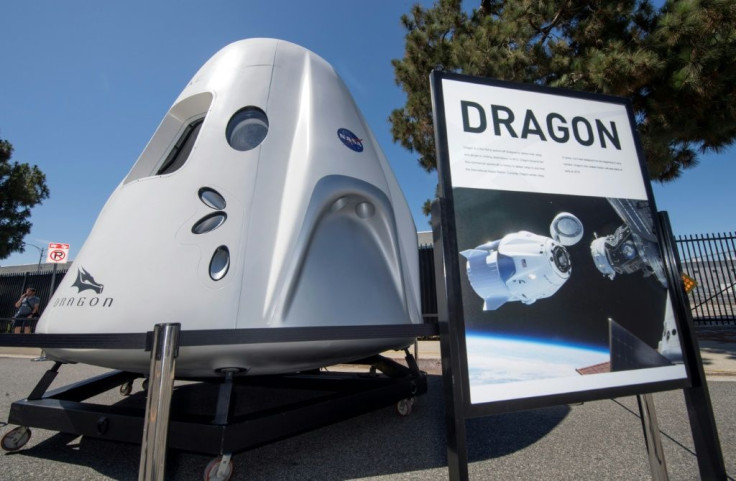SpaceX Announces Partnership To Send 4 Tourists Into Deep Orbit

SpaceX announced a new partnership Monday to send four tourists deeper into orbit than any private citizen in history has gone, without disclosing the date or price tag.
The company signed a deal with Space Adventures, which is based in Washington and has served as an intermediary to send eight space tourists to the International Space Station via Russian Soyuz rockets.
The first of these was Dennis Tito, who paid $20 million for an eight hour stay on the ISS back in 2001. The last to go was Cirque du Soleil founder Guy Laliberte, in 2009.
The tourists would be carried on SpaceX's Crew Dragon capsule, which was developed to transport NASA astronauts and is due to make its first crewed flight in the coming months.
The tourism flights won't go to the ISS, according to a statement by SpaceX, founded by billionaire Elon Musk.
"This historic mission will forge a path to making spaceflight possible for all people who dream of it, and we are pleased to work with the Space Adventures' team on the mission," said Gwynne Shotwell, president and chief operating officer of SpaceX.
The date and length of the mission have not been disclosed, but Space Adventures' president Eric Anderson said it would be "capable of reaching twice the altitude of any prior civilian astronaut mission or space station visitor." The ISS orbits at an altitude of 400 kilometers (250 miles).
That would place it well beyond what Richard Branson's Virgin Galactic and Jeff Bezos' Blue Origin are offering private customers. The two companies are developing vessels to send tourists just beyond the border of space (80 kilometers or 100 kilometers, depending on the definitions chosen by both). Tickets for Virgin started at $250,000 when they first went on sale in the mid 2000s.
SpaceX's offering would likely be far more expensive, into the range of tens of millions of dollars, and powered by the same reusable Falcon 9 rocket that puts satellites into space and are to send astronauts to the ISS.
At the same time, Boeing is also developing a crew capsule called Starliner, also with the intention of transporting US astronauts to the ISS.
Like SpaceX, Boeing also envisages sending tourists into space, but the program's development is hampered by major glitches that resulted in the early termination of an uncrewed test flight in December.
© Copyright AFP {{Year}}. All rights reserved.





















